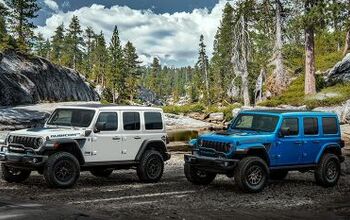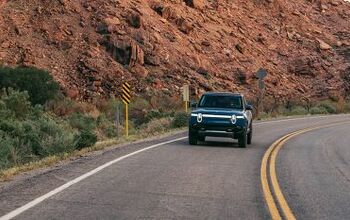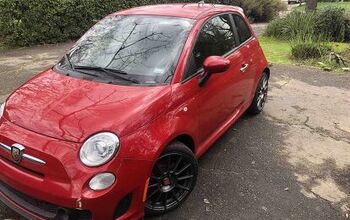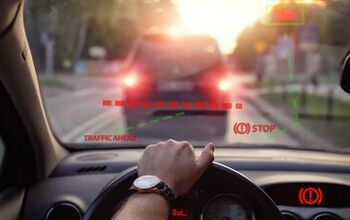Consumer Reports Rates 'Imperfect' Car With Perfect Score

Consumer Reports says that Tesla’s Model S P85D initially scored 103 points out of a possible 100, which initially “broke” their rating system.
Consumer Reports adjusted the overall score to 100, and said that the Model S P85D wasn’t perfect, but that it was very good:
To be clear, the Tesla’s 100 score doesn’t make the P85D a perfect car—even at $127,820. It has imperfections. The interior materials aren’t as opulent as other high-ticket automobiles, and its ride is firmer and louder than our base Model S.
What’s more, a lengthy road trip in an electric car with a 200-plus mile range can be a logistical hurdle if a quick-charging station isn’t along your route.
It’s also important to note that our Rating doesn’t include the Tesla’s reliability. The Model S has average reliability, according to our owner-survey responses.
The Model S P85D sports upgrades beyond the Model S, including “insane” and “ludicrous” speed modes that can propel the car from 0-60 in fewer than 3 seconds.
Previously, the Model S was the highest-rated car Consumer Reports had ever tested. The 1996 Porsche Boxster also scored a “perfect” 100 almost 20 years ago.
Consumer Reports said that the 103 score and its subsequent re-scoring of 100 wouldn’t impact other cars’ ratings.
“This car is not perfect in every single way,” said Jake Fisher, Auto Test Director for Consumer Reports. “It doesn’t fit in the rest of the automotive marketplace.”
Fisher added that the scoring system was “non-linear,” meaning cars wouldn’t need to accelerate from 0-60 mph in around 3 seconds to score well on the test.
According to the testers, the Model S P85D’s interior shortcomings and initial buyer satisfaction were more-than compensated by the car’s performance and fuel economy, which are both greater than the Model S.

More by Aaron Cole
Latest Car Reviews
Read moreLatest Product Reviews
Read moreRecent Comments
- W Conrad I'm not afraid of them, but they aren't needed for everyone or everywhere. Long haul and highway driving sure, but in the city, nope.
- Jalop1991 In a manner similar to PHEV being the correct answer, I declare RPVs to be the correct answer here.We're doing it with certain aircraft; why not with cars on the ground, using hardware and tools like Telsa's "FSD" or GM's "SuperCruise" as the base?Take the local Uber driver out of the car, and put him in a professional centralized environment from where he drives me around. The system and the individual car can have awareness as well as gates, but he's responsible for the driving.Put the tech into my car, and let me buy it as needed. I need someone else to drive me home; hit the button and voila, I've hired a driver for the moment. I don't want to drive 11 hours to my vacation spot; hire the remote pilot for that. When I get there, I have my car and he's still at his normal location, piloting cars for other people.The system would allow for driver rest period, like what's required for truckers, so I might end up with multiple people driving me to the coast. I don't care. And they don't have to be physically with me, therefore they can be way cheaper.Charge taxi-type per-mile rates. For long drives, offer per-trip rates. Offer subscriptions, including miles/hours. Whatever.(And for grins, dress the remote pilots all as Johnnie.)Start this out with big rigs. Take the trucker away from the long haul driving, and let him be there for emergencies and the short haul parts of the trip.And in a manner similar to PHEVs being discredited, I fully expect to be razzed for this brilliant idea (not unlike how Alan Kay wasn't recognized until many many years later for his Dynabook vision).
- B-BodyBuick84 Not afraid of AV's as I highly doubt they will ever be %100 viable for our roads. Stop-and-go downtown city or rush hour highway traffic? I can see that, but otherwise there's simply too many variables. Bad weather conditions, faded road lines or markings, reflective surfaces with glare, etc. There's also the issue of cultural norms. About a decade ago there was actually an online test called 'The Morality Machine' one could do online where you were in control of an AV and choose what action to take when a crash was inevitable. I think something like 2.5 million people across the world participated? For example, do you hit and most likely kill the elderly couple strolling across the crosswalk or crash the vehicle into a cement barrier and almost certainly cause the death of the vehicle occupants? What if it's a parent and child? In N. America 98% of people choose to hit the elderly couple and save themselves while in Asia, the exact opposite happened where 98% choose to hit the parent and child. Why? Cultural differences. Asia puts a lot of emphasis on respecting their elderly while N. America has a culture of 'save/ protect the children'. Are these AV's going to respect that culture? Is a VW Jetta or Buick Envision AV going to have different programming depending on whether it's sold in Canada or Taiwan? how's that going to effect legislation and legal battles when a crash inevitibly does happen? These are the true barriers to mass AV adoption, and in the 10 years since that test came out, there has been zero answers or progress on this matter. So no, I'm not afraid of AV's simply because with the exception of a few specific situations, most avenues are going to prove to be a dead-end for automakers.
- Mike Bradley Autonomous cars were developed in Silicon Valley. For new products there, the standard business plan is to put a barely-functioning product on the market right away and wait for the early-adopter customers to find the flaws. That's exactly what's happened. Detroit's plan is pretty much the opposite, but Detroit isn't developing this product. That's why dealers, for instance, haven't been trained in the cars.
- Dartman https://apnews.com/article/artificial-intelligence-fighter-jets-air-force-6a1100c96a73ca9b7f41cbd6a2753fdaAutonomous/Ai is here now. The question is implementation and acceptance.

































Comments
Join the conversation
I don't even know how Consumer Reports continues to have a sustained readership--one that pays for their shoddy advice at that when it's so easy to research independently. They're biased, and I've used products that happened to receive good scores from CR, yet in real life it was terrible (and vice versa). Anecdotal, but only to an extent. What's more, CR is limited in what it reviews--so many superior products are left untested. An example: Speed Queen washers and dryers and Sanitaire commercial-grade vacuum cleaners are far superior products than anything that can be had at Lowes, Walmart, Sears, Target, etc., bar none. Instead, most people miss out because the best they can do is offer a high score toward undeserving products like the glitzy laundry toys from Korea and space-age vacuums that have to be replaced as often as a razor (and so on). Candid reviews from owners who use the product on a daily basis trumps CR, along with research and personal criteria that need to be met. Relying on CR only means that the consumer cannot think for him/herself and needs to be (blindingly) led to buy what CR wants the reader to buy.
This is the same 100% perfect car that locked the testers out due to a faulty door actuator system? The only thing broken is CR goofy rating system and there Musk wearing iPhone addicted kids writing these reviews!